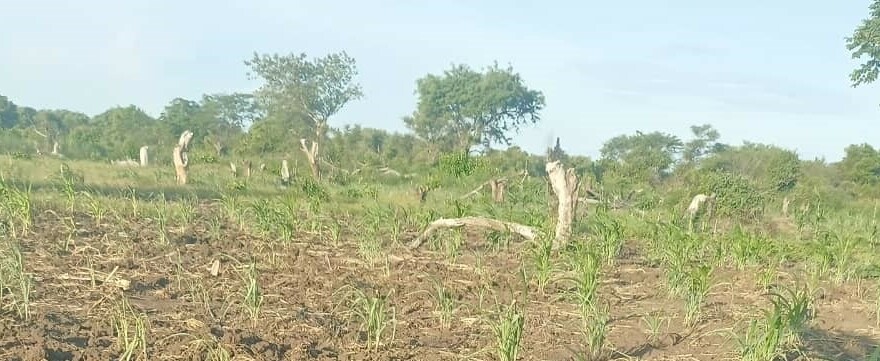Citizens in Pochalla County of the Greater Pibor Area say many families may suffer from hunger due to anticipated poor crop harvest this year.
Speaking to Radio Tamazuj on Sunday, several residents of Pochalla said they are unlikely to harvest due to low rainfall in the county this year. They called for assistance with irrigation equipment.
Paul Omot Oman, a local farmer, said all crops he planted this season had gone to waste.
“Here, we plant twice a year. This first cultivation season is just gone without rain after I planted maize. My maize crops have withered,” he said. “I could have harvested between 15 to 20 sacks of corn if it were to rain.”
Elijah Baleny Nyuagi, another resident of Pochalla, said delayed rains had left them hopeless.
“All crops I planted in April have dried up because it last rained on 15 April and then two days ago. There will be no food in Pochalla this year. If any well-wisher is to come to our aid, then we need equipment to embark on irrigation,” he said.
On his part, Owety Olung, the acting Pochalla County commissioner, appealed for aid. He blamed the situation on low rainfall that also came late compared to the previous years.
“In the entire Greater Pochalla, it has rained for a month. People are going hungry. There is a lot of suffering, so we need aid agencies to help us with food, seeds, and irrigation equipment because more than 400 big farms are affected,” he said.
Farmers in most parts of South Sudan face competing issues, including insecurity, lack of electricity, flooding, poor infrastructure, desert locusts, the economic situation, and drought.
Despite the huge agricultural potential South Sudan possesses, only about 5 percent of the country’s arable land is reportedly cultivated.




